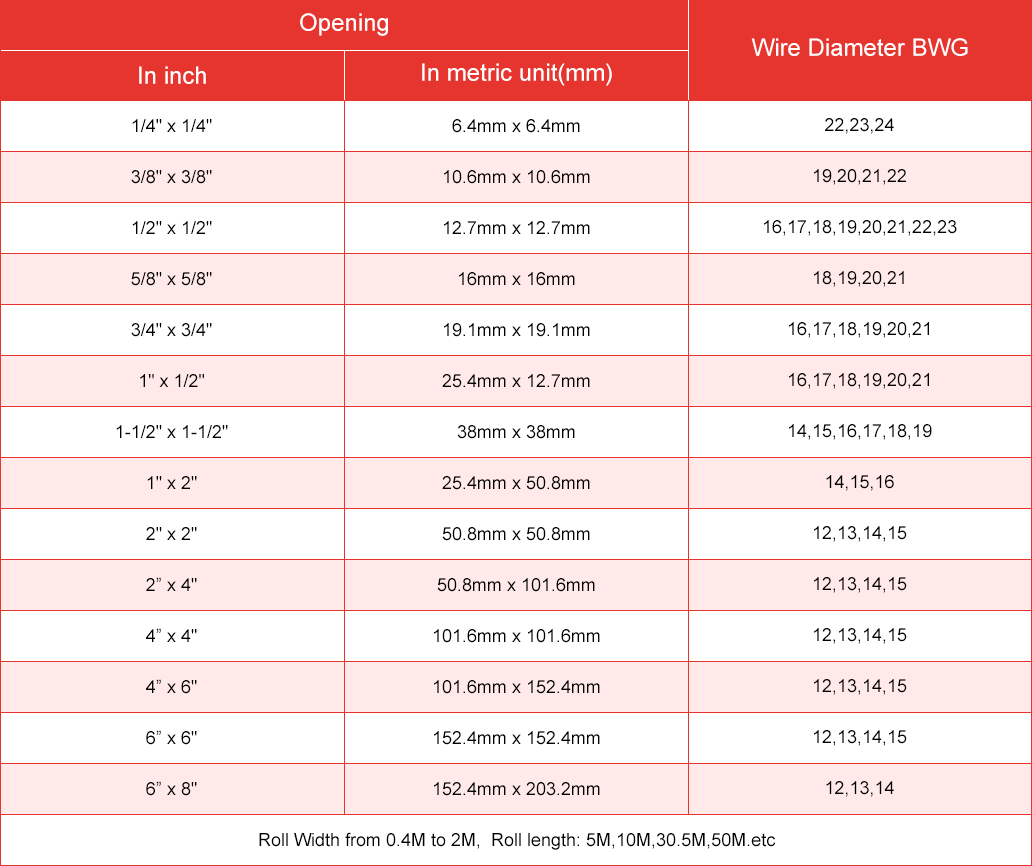Understanding Wire Mesh Gauge Sizes for Various Applications and Industries
Understanding Wire Mesh Gauge Sizes
Wire mesh is a versatile material used in various applications, from construction to agriculture. One of the vital considerations when selecting wire mesh is its gauge size, which refers to the wire's thickness and influences the mesh's strength, durability, and utility.
What is Wire Mesh Gauge?
In simple terms, the gauge size of wire mesh indicates how thick the wire strands used to create the mesh are. The gauge number is inversely related to the thickness as the gauge number decreases, the diameter of the wire increases. For example, an 8-gauge wire is thicker than a 12-gauge wire. This measurement system is essential for determining the mesh's physical properties and suitability for specific applications.
Common Gauge Sizes
Wire mesh is available in various gauge sizes, typically ranging from 6 to 30 gauges
. Here's what some common sizes look like- 6 Gauge One of the thickest options, often used in applications requiring high strength, such as fencing, cages, and heavy-duty construction projects. - 10 Gauge Another robust choice, suitable for security fencing, animal enclosures, and industrial applications. - 12 Gauge A versatile option, often used for light-duty fencing, wire mesh panels, and decorative projects. - 14 Gauge Commonly found in general-purpose mesh applications, it strikes a balance between strength and flexibility. - 16 Gauge and Below These thinner wires are used for applications where less structural integrity is required, such as garden fencing, window screens, and light-duty mesh structures.
Application Considerations
wire mesh gauge sizes

When selecting a wire mesh gauge size, various factors come into play
1. Load-Bearing Capacity Thicker wires can support greater loads and resist bending and deformation. Therefore, understanding the demands of your project is crucial.
2. Environmental Resistance Consider the conditions the mesh will face. Thicker wires generally provide better resistance to environmental factors like corrosion, impact, and extreme weather conditions.
3. Aesthetic Appeal For applications like architectural features or decorative installations, the gauge size can affect the visual outcome. Thinner wires may appear more delicate, while thicker wires have a bolder presence.
4. Safety and Security If the mesh is being used for fencing or cages, a thicker gauge will enhance security, making it more challenging for intruders to breach or for animals to escape.
Conclusion
Choosing the appropriate wire mesh gauge size is crucial for ensuring the effectiveness and longevity of your project. Whether you're constructing a fence, designing a garden trellis, or fabricating industrial components, understanding the implications of wire gauge can help you make informed decisions. Investing in the right gauge size based on your specific needs can ultimately lead to significant savings and satisfaction, ensuring that your wire mesh functions effectively for its intended purpose. Always consider the full scope of your project requirements and match them to the right wire gauge to achieve the best results.
-
Space-Saving Chain Fence Hacks Vertical Gardening with Cyclone MeshNewsJul.16,2025
-
Innovations in Iron Nail Wire Production for Modern ConstructionNewsJul.16,2025
-
Creative Uses of Wire Netting Fence in Modern Landscape DesignNewsJul.16,2025
-
Barbed Wire Fence Innovations in Anti-Climb TechnologyNewsJul.16,2025
-
Architectural Uses of Umbrella Nails for Aesthetic Roof DesignsNewsJul.16,2025
-
Architectural Uses of Razor Barbed Wire in Secure Urban DesignNewsJul.16,2025




